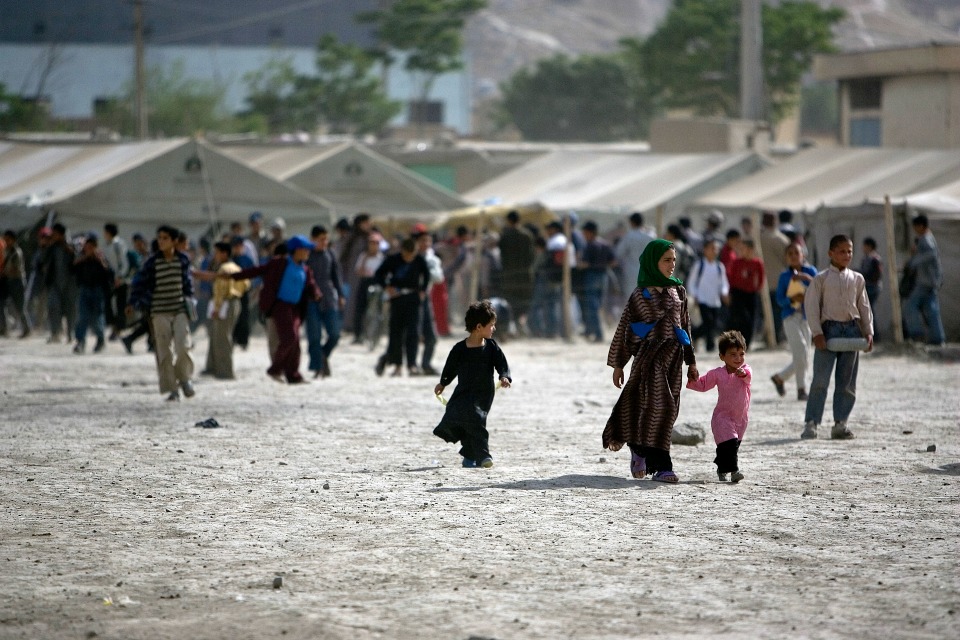"The United Kingdom is working closely with the Afghan Government as it seeks to overcome the country’s legacy of conflict."
Statement by Ambassador Peter Wilson, UK Deputy Permanent Representative to the United Nations, at the Security Council briefing on Afghanistan.

Thank you Mr. President,
I join others in thanking all of our briefers. And as you said, SRSG Yamamoto, Afghanistan will not stand alone. I also want to join others in thanking New Zealand for its stewardship of an extremely important committee in carrying out that function extremely well. It’s a very important function for this Council.
2016 was an important year for Afghanistan. The Warsaw Summit in July and the Brussels Conference in October saw the international community pledge the military and financial support that Afghanistan will need to meet the considerable political and economic challenges of the coming years. We also pledged to support the ambitious reform commitments of the National Unity Government.
Now that the National Unity Government has a clear signal of our support, we look forward to 2017 and to the implementation of the reforms Afghanistan needs for a brighter future. In all of this, the government and the people of Afghanistan will have the United Kingdom’s support.
I don’t think anyone in this Chamber underestimates just how much there still is to do to ensure Afghanistan stays on the path to sustained stability.
We should focus on three specific points: one, countering extremists, two, continuing development efforts, and three, encouraging regional cooperation.
First on countering extremists, it’s clear that Da’esh are not just a problem to be dealt with in Syria and Iraq. They are a global threat and Afghanistan has sadly seen this firsthand. Less than one month ago, Da’esh claimed the lives of 30 people and left over 70 injured on the streets of Kabul.
The Taliban are compounding the security situation, acting as another armed group in a country that has had more than its fair share. Last week they stopped a fourth year student of Kabul Polytechnic University as he was driving home to visit his family. They hanged him, in the open, in public, evoking the darkest days of life under Taliban control. And only this weekend, five female security staff were murdered on their way into work in Kandahar.
These are senseless deaths and show that the Afghan National Defence and Security Forces with the NATO Resolute Support Mission have a tough road ahead.
For our part, the United Kingdom is working closely with the Afghan Government as it seeks to overcome the country’s legacy of conflict. And as the coalition’s leader of the Afghan National Army Officer Academy, we are proudly helping to train the next generation of military leaders.
As we seek to help to ensure security on the streets, we also recognize that Afghans must also feel safe in their own homes. The sad fact is that this is not a reality for many Afghan women. That’s why British Foreign Secretary Boris Johnson pledged his support for the elimination of violence against women when he spoke with Dr. Abdullah recently.
Second Mr. President, security will always be short lived if we don’t provide a foundation of development for all Afghan people.
So we welcome the government’s ambitious Afghan National Peace & Development Framework. The United Kingdom will be a long term partner in its delivery. I am proud so far of our support for 7.2 million children from Kabul to Kandahar, who are going to school thanks to the UK’s support. Over 3 million of them are girls. I call on all members of this Council to follow suit and invest in Afghanistan’s future through development.
Third and finally, Mr President, Afghanistan and its partners must continue to bolster regional relations at both the political and the technical level. The National Unity Government is charting a course toward stability. For them to succeed Afghanistan’s neighbours and partners must further empower this, working in lockstep. We welcome the recent Heart of Asia Summit which reinforced the common interests of Afghanistan and its neighbours. Promoting cooperation across the region through investment in infrastructure, overcoming barriers to trade, and pursuing mutually advantageous economic development opportunities is in the entire region’s interest.
In conclusion Mr President, 2016 has been a year of progress and challenges in Afghanistan. As it draws to a close, we look forward to a more peaceful and prosperous year ahead. A year that sees economic growth, improvements in the delivery of health, education, water, and a year that sees the lives of ordinary Afghans getting better.
All of this will require sustained political will by the government, and effective and coordinated support by the rest of us. In that effort, the United Nations Assistance Mission in Afghanistan and this Council will play a vital supporting role.
Thank you.